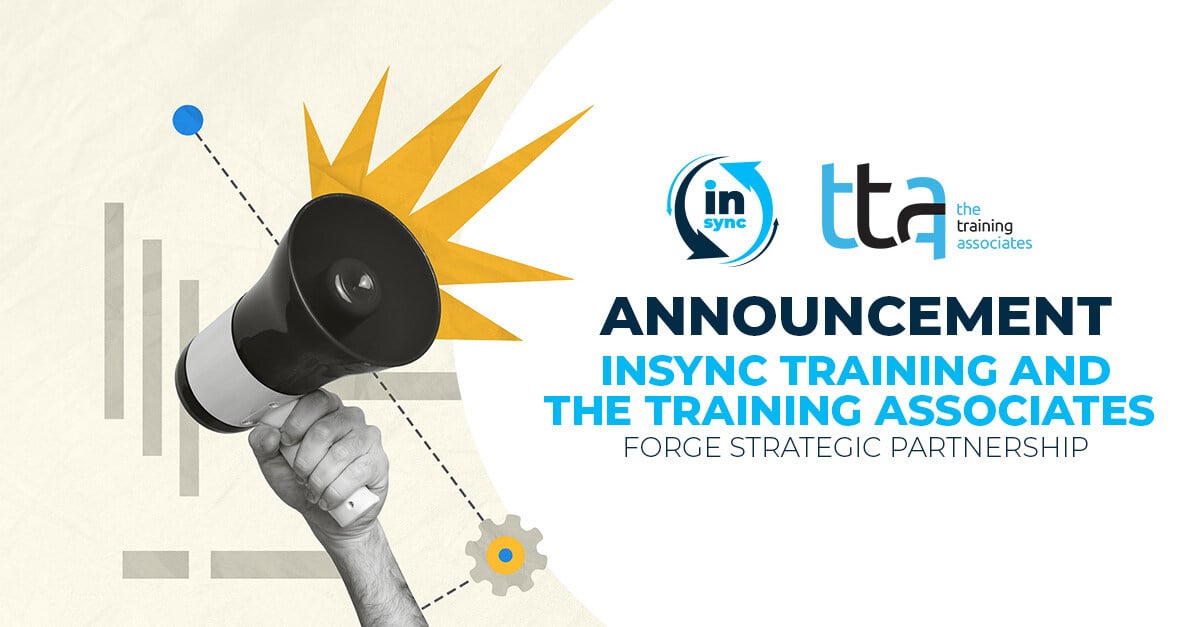InSync Training & The Training Associates Forge Strategic Partnership
Moving Ahead to Elevate Global Learning and Development Portsmouth, NH Marlborough, MA – May 16, 2024
3 min read
 Jennifer Hofmann
:
Apr 14, 2022 3:56:18 PM
Jennifer Hofmann
:
Apr 14, 2022 3:56:18 PM

Since March of 2020, learning and development teams have been rushing to move their face-to-face content to virtual platforms like Zoom, Webex, MS Teams, and Adobe Connect with the intent of providing virtual training.
This wholesale conversion to virtual was a stop-gap measure. The focus was getting the content online temporarily - just for the few months while we were working at home. But a few months turned into a policy of “Virtual First.” Strong arguments will need to be made to justify in-person classes, especially those that include travel related expenses.
As corporations are creating their hybrid-work strategy, they are also considering what role virtual classrooms will play in their long-term learning strategy.
The rush to virtual is now over. And the focus needs to shift from quantity of content delivered to quality of content delivered. Virtual training is about more than showing up with slides, turning on the video, and hoping people learn. Your team's virtual training is a vital key to not only their success, but also to yours.
Effective virtual training takes specialized design techniques, facilitation mastery, and strong production support. To increase quality, we need to make a formal training plan available for all members of our virtual team: facilitators, instructional designers, and virtual classroom producers.
 5 Reasons To Get Certified in Virtual Training
5 Reasons To Get Certified in Virtual TrainingSo often the training we get for supporting the virtual classroom consists of four things: loading slides, creating polls, muting the audience, and turning on the video. This is a recipe for an unengaging learning experience and does not encourage learning transfer.
Facilitators need to be able to engage learners environmentally, intellectually, and emotionally.
Designers need to be able to create rich experiences that rival a traditional classroom.
Producers need to be able to advocate for the learner and support the facilitator in more ways than just supporting technology.
Nothing demotivates a learner more than listening on mute for an hour, or a day, or a week! Learning needs to be active, immersive, and intellectually stimulating. The training team needs to know how to make learners want to come back to learn more.
After more than two years of hybrid and virtual training, training managers and the rest of the team might feel like they have learned all they needed through the trenches.
However, the nuances of -
how to ask questions in order to get responses,
how to design for different instructional strategies, techniques or technologies
May be techniques you need to practice more deeply.
Investments in professional development result in credibility with your clients. We care enough to train the rest of the organization – we need to care enough to develop our own skills.
No matter your role on the team, you need to embrace virtual training as part of your future. The pandemic just accelerated the trend that was happening in our industry already. As the hybrid workforce becomes more global, virtual, and mobile, the expectation will be that training will be delivered in a way that meets the needs of a diverse organization.
InSync Training’s industry-recognized and accredited Virtual Learning Expert ™(VLE) curriculum enhances the ability of participating training professionals to design, deliver, and implement effective live virtual training. The VLE is grounded in the InQuire Engagement Framework™, a three-pronged approach to maximizing the engagement of all learners in the virtual classroom.
The framework, an ongoing research effort at InSync, is designed to optimize an organization’s existing training and provide a new construct for creating training programs that work in today’s hybrid workplace and “virtual first” approach to training and employee development. InSync Training is an IACET accredited Provider – 15 years and counting!
You can rest assured knowing that InSync’s Certificate Courses and services are developed, delivered, and evaluated in compliance with ANSI/IACET 2018-1 Standard for Continuing Education and Training.
The American National Standards Institute (ANSI) is a private, non-profit organization that administers and coordinates the U.S. voluntary standards and conformity assessment system. Founded in 1918, the Institute works in close collaboration with stakeholders from industry and government to identify and develop standards- and conformance-based solutions to national and global priorities.
Enroll for each program individually or purchase the VLE Certification at a discount.

Moving Ahead to Elevate Global Learning and Development Portsmouth, NH Marlborough, MA – May 16, 2024
 Read More
Read More